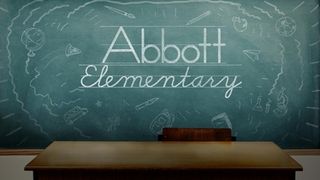Abbott Elementary is a mockumentary-style sitcom television series created by Quinta Brunson, who stars as Janine Teagues, a second grade teacher at the fictional Abbott Elementary School in Philadelphia. Since premiering in December 2021, the series has become a popular and critical hit, particularly resonating with educators who see it as close to depicting actual school building dynamics.
Brunson, the daughter of a kindergarten teacher, based the show on her own experiences attending school in Philadelphia with her mother and her favorite teacher, Ms. Abbott. In addition to featuring Janine’s evolution as an instructor, the show mixes humor with many real-life outside-the-classroom challenges facing educators, from struggling without proper funding to navigating district politics.
“My goal with the show is to make people laugh, but I do hope that it gets people thinking,” Brunson told the Los Angeles Times. “And [that] it puts a little bit of pressure on the people who need to be pressured a little.”
Although a TV comedy, Abbott Elementary does offer lessons that real-life teachers can appreciate.
Abbott Elementary: Always Students First
Despite being underfunded, understaffed, and under the rule of a principal (Janelle James) who, at first is more interested in boosting her own status as a social media influencer than boosting educational outcomes, Janine and her fellow teachers constantly put the needs of their students before themselves. At times that means intentionally embarrassing themselves to engage students, starting their own garden to grow fresh vegetables for the students, and even obtaining rest time rugs from less-than-reputable sources, all in the name of doing what’s best for the students.
By letting the students’ needs guide their actions, the teachers of Abbott Elementary ultimately help themselves to make the right choices and grow as educators and humans.
Collaboration and Communication Is Essential
In multiple situations, Janine teams up with colleagues to accomplish a range of goals, including easing the transition for students from one grade to the next and handling disruptive students. In one episode, Janine and her fellow idealistic teacher Jacob Hill (Chris Perfetti) take over the enrichment program together, and when they realize the success is inadvertently causing bad feelings among students who are not participating, they create a rotational enrichment program for all grades.
Schools are complex social environments, and it’s impossible to succeed in one as a teacher or a student without the help of others. Learning to work together and communicate with one another is a significant component of finding success.
Mentorship Matters
Janine constantly talks about how much she looks up to her fellow teacher Barbara Howard (Sheryl Lee Ralph), looking to her as a mentor (and even accidentally calls her “mom” at one point). Barbara takes Janine under her wing and provides instructional guidance and tough love as needed.
Janine also learns from her other colleagues, including Melissa (Lisa Ann Walter), a savvy and seemingly Philly-tough teacher, who appreciates Janine’s wide-eyed optimism while tempering her youthful exuberance.
In one episode, veteran teachers Barbara and Melissa give teaching tips to Gregory (Tyler James Williams), a young teacher who is struggling to connect with his students. They share how over the years they’ve learned that what seem like inane questions from students sometimes could be examples of critical thinking and that occasionally injecting a little fun (and dancing) into instruction can make a big difference.
Just as educators serve as role models and guides for students, they themselves need to learn from more experienced colleagues as they progress through their careers. They can then turn around and share that experience and knowledge with the next upcoming generation.
Be Open to Creative Problem-Solving
Partially because of the TV sitcom structure, challenges presented at the beginning of an episode are rarely ever resolved in a straightforward manner. For example, when trying to control the viral challenge of “desking,” (in which students record themselves jumping from desk to desk when teachers’ backs are turned and then post on social media), the teachers at Abbott first try to get the students to stop via traditional means such as explaining the dangers of the activity. Eventually, they come upon the solution of recording and posting a clip of Jacob, the most “uncool” teacher, doing the trend and thus the “cool” allure is subsequently busted.
Funding, supplies, and administrative support are often in short supply in real life. However, there’s no limitation on ingenuity, creativity, and perseverance when addressing challenges. Keeping an open mind and being flexible can result in unexpected solutions and successes.
Remember the Joy of Teaching
Even with all the challenges in each episode, the team at Abbott Elementary ultimately continues to draw strength and inspiration from their love of teaching. As Janine says when Gregory tells her that his military father doesn’t want him to pursue education as a career, “Teaching is the best job in the world.”
Of course, in real life problems are not solved in 22 minutes (plus commercials). Given all the hurdles and vast range of personalities present in any school, teaching can be an extraordinarily challenging experience. It’s important to welcome joy in the classroom as well as support your mental health and identify and reduce burnout.
Or as Melissa says: “We care so much, we refuse to burn out, otherwise you open a whole other box of Panera’s problems.”

